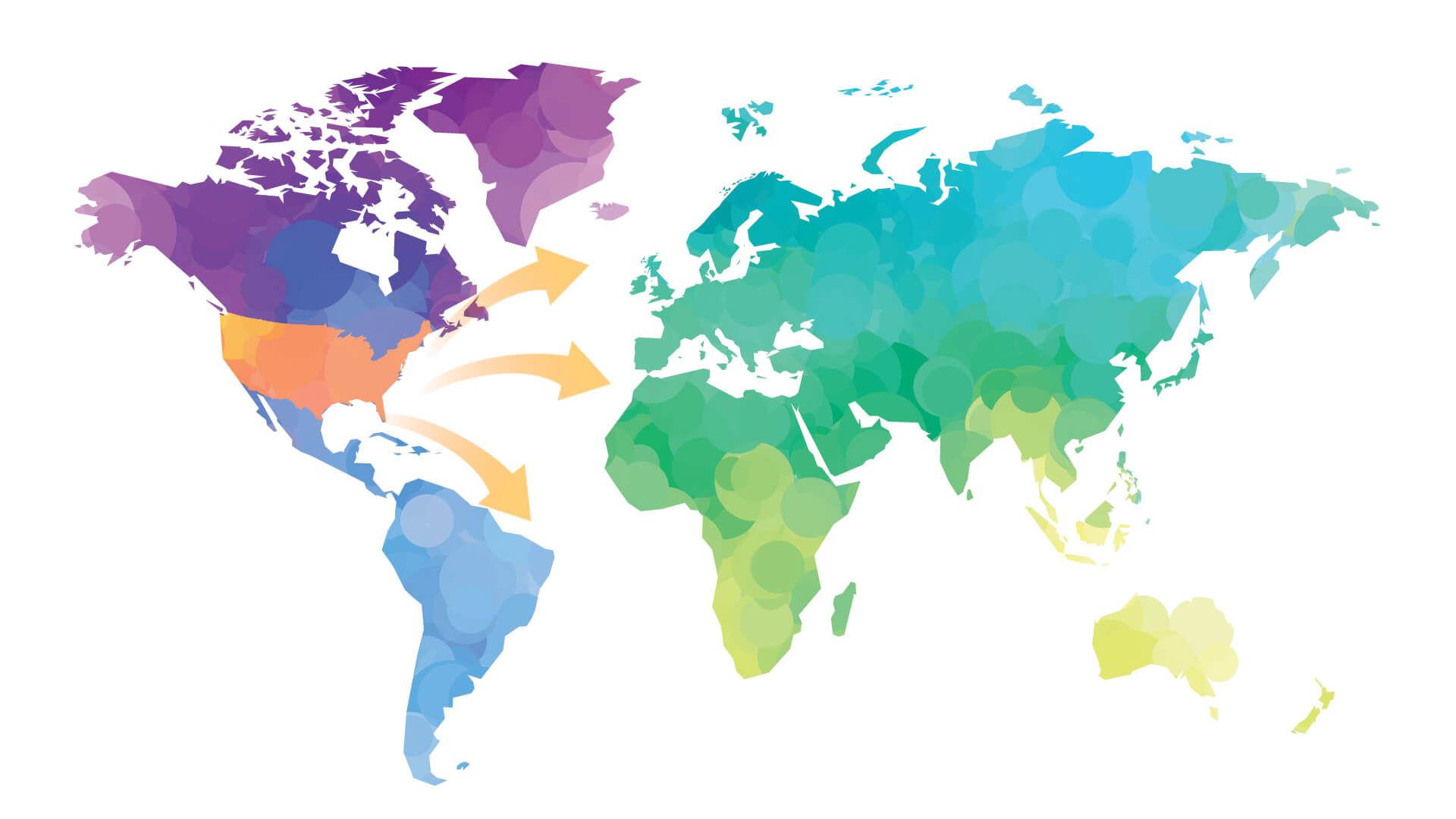
Japan’s progress, Korea’s demographics and retail participation in the stock market, all generate demand for reforms as we conclude our look at the Korea Discount.
What It Would Mean to Close the Korean Discount: Lessons from Japan
In Japan, the Nikkei 225 posted an impressive rally this year on the back of the latest reform efforts. The Tokyo Stock Exchange (TSE) revised Japan’s Corporate Government Code in 2021 requiring independent board members, among other pro-growth regulations. Last year, the TSE issued guidelines to listed companies requiring disclosures on efforts to improve Return on Equity, Return on Invested Capital and Weighted Average Cost of Capital metrics. The government and the TSE continue engaging with investors and companies to overhaul corporate governance, capital management and sustainability. This led to the Nikkei 225 Index exceeding its all-time high set 34 years ago and, now, only 35% of companies trade at below book value, compared to ~50% just two years ago.
Percentage of Companies Trading Below Book Value in Various Indexes
Source: Bloomberg
Nikkei 225 Index Reached New All-time Highs for the First Time in More than a Generation
Source: Bloomberg
This isn’t the first time Japan has embarked on a capital markets reform. In the early 2000s and again in the early 2010s, Prime Ministers Koizumi and Abe introduced early efforts at corporate governance reforms, both of which led to initial rallies that lost momentum. This time, there is more depth and breadth to the government’s push to improve corporate values by specifically addressing Japan’s capital allocation practices.
A case study of Japan provides insights into the potential outcomes of addressing valuation disparities. Japan has implemented shareholder-friendly policies, leading to the re-rating of companies like Hitachi. By emulating Japan’s capital market reforms, Korea could attract more investor interest and drive positive market performance.
What It Would Mean to Close the Korea Discount: Implications for Korean equities
Closing the Korea Discount could have significant implications for individual companies and the overall Korean market. Companies with undervalued stocks, such as Hyundai or Kia, could witness a revaluation that aligns their share prices more closely with their global peers, unlocking value for investors.
For example, Hyundai is currently valued at 0.6x P/B, a 60% discount to Toyota and 28% discount to Stellantis, despite Hyundai’s position as the world’s third-largest automaker. If Hyundai was valued at 1.0x P/B, estimates suggest they could unlock >60% of value.
Why the Korea Discount Matters Today
As in Japan, Korea also previously attempted capital market reforms, with modest efforts that largely fizzled. There is some skepticism from foreign investors on whether the reforms will work this time. But what’s different now is more significant retail participation than in the past. 2024 is an election year, and there are aging demographics with a strained pension system.
- There were 14.2M retail investors in Korea in 2022 vs. 5.6M in 2018 – a surge primarily attributed to the bull market during the COVID-19 pandemic. Retail investors accounted for 64% of annual transaction amounts in the Korean stock market in 2023 vs. 30% in the U.S. or Japan. These retail investors bring more of the country’s population into the equities market, meaning non-Chaebol members of the voting public.
- Add to that the April 2024 National Assembly elections. Nearly a third of Korea’s electorate are retail investors and therefore a significant voting bloc.
- Lastly, Korea has a demographic challenge as its fertility rate for reproductive women fell to 0.72 in 2023, one of the world’s lowest and far below the 2.1 rate required to keep its population steady. This puts extraordinary financial stress on the National Pension Service, which had roughly $777 billion in assets as of December 31, 2023. Today, only 13% of that sum was allocated to domestic equities, less than half of the 32% invested overseas. Observers believe that eliminating the Korean Discount could unlock much-needed value in Korean equities, bolster the NPS’s portfolio, and shift some pension investment back into domestic equities, lifting share prices.
How Does One Close Its Valuation Gap? The Value-Up Plan and Other Ideas
To push Korean firms, including the Chaebol, into closing the country’s valuation discount, the Korea Financial Services Commission recently launched its “Value-Up” program. The announcement, timed ahead of April’s parliamentary elections, was a nod to Korea’s growing retail investor market.
The Value-Up Plan encourages companies to increase dividend payouts, actively manage share count through buybacks and cancellations, and improve capital allocation practices. The program has three main components: guidelines to incentivize improved shareholder return policies, establishing an index to promote company efforts to improve valuations, and an augmented government support system. The details released in February disappointed many market participants primarily because nearly the entire program is voluntary. Still, they did include undisclosed tax incentives for firms to provide basic key performance indicators such as price-to-book ratios and steps to pressure firms to adhere to a price-to-book ratio floor of 1.0. However, the voluntary aspect of the program led to speculation that it may falter following April’s vote.
Thankfully, that is not the only government initiative. President Yoon is also considering reducing Korea’s high inheritance tax rate, which can reach as high as 60% and is among the highest in the world. These high inheritance taxes have led Chaebol families to look for creative solutions that may not be aligned with maximizing shareholder value.
Still, having observed Japan’s successful capital market reforms, Korea’s market participants are expected to closely monitor the Value-Up program and compare it to Japan’s market reforms.
Corporate Governance Reforms Can Enhance Chaebol Companies
Since their founding, Chaebols have had generally friendly relationships with various Korean governments, given their historical importance in economic growth. Enhancing transparency, accountability, and independent oversight within Chaebols can instill greater investor confidence. Increasing board diversity by including prominent foreign directors, experts, and independent directors could also promote better governance practices. Korea needs to look only at Taiwan and Japan as examples.
Conclusion
Closing the Korea Discount is not only about short-term market performance but also has long-term implications for economic stability and social welfare. By fostering a market environment that values shareholder rights and promotes transparency, Korea can attract sustainable investments for its aging population.
At Thornburg, we have been researching and analyzing the Korean market for some time. Our analysts and portfolio managers regularly visit Korea and meet with companies and officials to comprehensively understand the market dynamics. As active managers, we are well-placed to identify currently undervalued companies that may close the Korea Discount, enhancing future valuations.
Discover more about:
More Insights

Tariffs, Stagflation, and the Fed: A Spotlight on Investors’ Most Pressing Questions

How We Invest: Active by Nature. Disciplined by Design.

Thornburg Income Builder Opportunities Trust Announces Distribution

Investment Perspectives from the Road: The UAE

Investor Update: A Potential Reprieve for the Municipal Bond Tax Exemption


